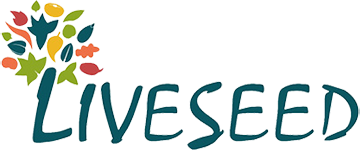LIVESEED’s international workshop on 25-26 June put the spotlight on North-West Europe and the EU organic regulation’s implementation on organic seed in this region. The meeting was initially planned as physical workshop at seed company Bejo Zaden. However, the Covid-19 pandemic moved the event online, turning out a great success with high participation and engagement.
Smart practices
A workshop’s main focus was best practice exchange among participants on boosting the production and use of organic seed in Europe. National Seed Expert Groups on a variety of topics (including arable crops, fruits & vegetables) were identified as an effective tool to manage derogation lists and national targets for specific crop types. On top of this, expert groups can also assess the suitability of a variety for organic farming, as the Danish example shows.
In the context of derogations, a national annex listing crops for which no derogation can be requested is a way to restrict derogations. Such national annexes are already successfully implemented in many countries of the North-Western European region. France takes this principle of categorization further by specifying 3 different types of derogatory status. They range from a general authorization (if no availability of organic seed on territory) to off-derogation (if sufficient availability). In addition, there is also an ‘alert screen’, meaning that the species is in a transitional phase and derogations will not be possible anymore soon.
Finally, roadmaps at national and European level were identified as crucial to gradually increase the percentage of organic seed per crop. This way, seed companies get the opportunity to gradually increase supply while also giving farmers more clarity for long-term planning.
The seed database
The new EU Organic Regulation brings about a number of changes to the seed database. National Authorities will have to extend the functionality of the database to make it easier for suppliers placing their offers online and for farmers to get a better overview of the availability of organic seeds. Regarding the type of seeds, the ‘new’ database will also host the new category of ‘Organic Heterogenous Material as well as in-conversion seeds.
The European Router Database, currently in development as part of the LIVESEED project, will play a crucial role in connecting seed offers within Europe. Seed suppliers and national authorities are currently testing it and it will be officially launched in November. If you are interested to join the testing phase, we invite you to get in touch with Xenia Gatzert from FiBL.
Strategy to reach 100%
One of the highlights of the workshop was the panel session, including national authorities, seed companies, farmers, and the European Commission. To reach LIVESEED’s ambitious target of 100% organic seed by 2035, panelists identified the need to install and expand national seed expert groups and to improve the seed databases. Those national seed expert groups are already widespread in North-Western European countries and serve as role-model for other Member States. In addition, the crucial role farmers and breeders was acknowledged, just like the need for more capacity-building allowing them to make an even greater contribution.
Most importantly, clear roadmaps for the percentage of organic seed per crop are needed on national and European level. France is a good example showing how this can work in practice. Participants and panelists were impressed by the benefits of the French approach and suggested it to be implemented all over Europe. The panel was insightful and maintained a highly constructive spirit that is at the heart of the LIVESEED project.
The workshop was organized by Bionext in cooperation with IFOAM Organics Europe, FiBL, Bejo and ECO-Plant Breeding and intended for competent authorities, control bodies, database managers, seed suppliers, policy makers, farming associations and other interested stakeholders from North-western European countries.
 Liveseed
Liveseed Liveseed
Liveseed